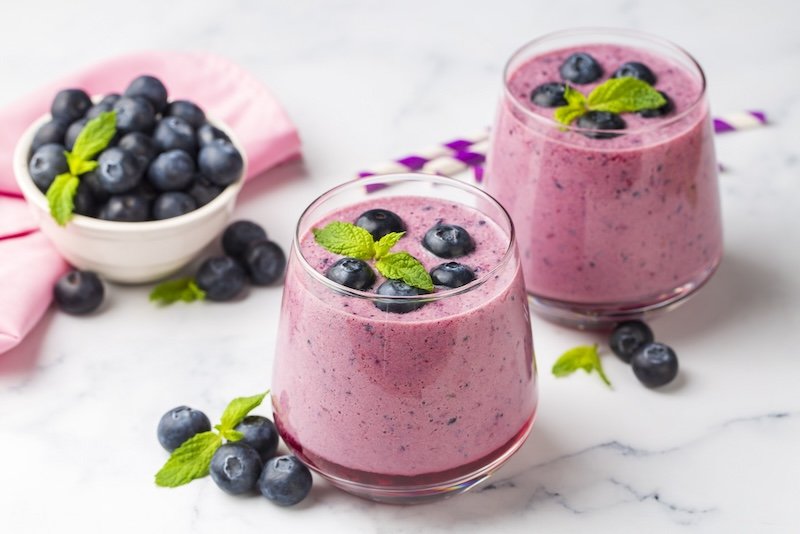5 Ingredients to Include in Your Diet for Better Skin
The connection between diet and skin health has gained significant scientific attention in recent years.
Research increasingly shows that what we consume plays a crucial role in determining skin appearance, elasticity, hydration, and resilience against aging. While topical skincare products are valuable, nourishing the skin from within can provide complementary benefits that surface treatments alone cannot achieve.
This article explores five evidence-based ingredients that can be incorporated into your diet to enhance skin health, appearance, and function.
1. Marine Collagen
Collagen is the most abundant protein in the human body and a primary structural component of skin. As we age, natural collagen production declines, contributing to wrinkles, decreased elasticity, and dryness. While the body produces collagen naturally, dietary sources can help supplement this production.
Marine collagen, derived from fish skin and scales, has gained particular attention due to its bioavailability and effectiveness. Its smaller peptide size compared to bovine or porcine collagen allows for potentially better absorption and utilization by the body.
A randomized, placebo-controlled study published in the journal Nutrients in 2021 demonstrated that daily oral marine collagen supplementation for 12 weeks led to significant improvements in skin hydration, elasticity, roughness, and density compared to placebo (Borumand & Sibilla, 2021). Participants showed measurable improvements in skin parameters, with benefits becoming noticeable around 6-8 weeks of consistent supplementation.
How to incorporate it:
Marine collagen is available as a powder supplement that can be mixed into smoothies, coffee, or tea. It's generally tasteless, making it a versatile addition to various beverages and recipes. Typical effective doses in studies range from 2.5-10g daily.
2. Omega-3 Fatty Acids
Omega-3 fatty acids—particularly EPA (eicosapentaenoic acid) and DHA (docosahexaenoic acid)—are essential fats that play numerous roles in skin health. They form an important component of cell membranes, help maintain skin barrier function, and possess potent anti-inflammatory properties.
A comprehensive review published in Marine Drugs examined the applications of fish oil's fatty acids on skin health. The researchers found that omega-3s can help manage inflammatory skin conditions like atopic dermatitis, psoriasis, and acne while also providing photoprotection and potentially reducing UV-induced damage (Huang et al., 2018). The anti-inflammatory mechanisms of omega-3s can help calm irritated skin and reduce redness.
Beyond managing skin conditions, regular consumption of omega-3 fatty acids contributes to improved skin hydration, reduced sensitivity, and enhanced wound healing—all crucial factors for maintaining healthy, resilient skin.
How to incorporate it:
Dietary sources rich in omega-3s include:
● Fatty fish (salmon, mackerel, sardines)
● Flaxseeds and flaxseed oil
● Walnuts
● Chia seeds
● Algae (for vegetarian/vegan options)
Aim for 2-3 servings of fatty fish per week or consider a high-quality fish oil or algae-based supplement if dietary intake is insufficient.
3. Antioxidant-Rich Berries
Berries—including blueberries, strawberries, raspberries, and blackberries—are powerhouses of skin-friendly nutrients. They contain high levels of vitamin C and various polyphenols with antioxidant and anti-inflammatory properties that protect skin cells from oxidative stress.
Vitamin C is essential for collagen synthesis, while antioxidants like anthocyanins (which give berries their vibrant colors) help neutralize free radicals that contribute to premature aging. Regular consumption of berries has been associated with reduced signs of photoaging and improved skin cell turnover.
The antioxidants in berries also help protect against UV damage—though they don't replace sunscreen, they can provide an additional layer of defense against environmental stressors. Studies have shown that regular consumption of berries can increase the body's overall antioxidant capacity, benefiting not just the skin but overall health.
How to incorporate it:
● Add fresh or frozen berries to morning smoothies
● Mix berries into yogurt or oatmeal
● Enjoy as a standalone snack
● Incorporate into salads for added color and nutrition
Aim for at least 1 cup of mixed berries daily to reap their skin-protective benefits.
4. Green Tea
Green tea contains polyphenols called catechins, with epigallocatechin gallate (EGCG) being the most abundant and studied. These compounds offer impressive benefits for skin health through multiple mechanisms:
● Potent antioxidant activity that protects skin cells from damage
● Anti-inflammatory effects that can reduce redness and irritation
● Photoprotective properties that help prevent UV-induced skin damage
● Regulatory effects on sebum production, potentially benefiting acne-prone skin
Research has demonstrated that regular consumption of green tea can improve skin elasticity, hydration, roughness, and density. Some studies have even shown that green tea consumption may help protect against skin cancer development by providing DNA repair mechanisms and reducing UV damage.
Additionally, the L-theanine in green tea promotes relaxation, potentially reducing stress-related skin issues, as psychological stress is increasingly recognized as a factor in various skin conditions.
How to incorporate it:
● Drink 2-3 cups of green tea daily
● Use matcha (concentrated green tea powder) in smoothies or recipes
● Consider green tea supplements if the taste isn't preferable
For maximum catechin content, brew green tea for 3-5 minutes and add a splash of lemon juice, as the vitamin C enhances catechin absorption.
5. Beta-Carotene Rich Foods
Beta-carotene is a precursor to vitamin A (retinol) and belongs to a group of antioxidants called carotenoids. This nutrient is crucial for skin health as it:
● Helps normalize cell production and turnover
● Protects against UV damage as a natural photoprotectant
● Contributes to the skin's immune defenses
● Supports wound healing and tissue repair
Foods rich in beta-carotene often have a characteristic orange or yellow color, though some green vegetables are also excellent sources. Regular consumption of these foods has been linked to improved skin tone, texture, and resilience against environmental damage.
Studies have shown that dietary beta-carotene accumulates in the skin, providing a low-level natural photoprotection with an SPF of approximately 2-4. While this doesn't replace sunscreen, it adds an additional layer of defense.
How to incorporate it:
The best dietary sources of beta-carotene include:
● Sweet potatoes
● Carrots
● Butternut squash
● Spinach
● Kale
● Red and yellow peppers
● Apricots
Aim to include at least one beta-carotene rich food in your diet daily, preferably consumed with a source of healthy fat to enhance absorption.
The pursuit of healthy, vibrant skin extends beyond topical treatments to include what we put into our bodies. These five ingredients—marine collagen, omega-3 fatty acids, antioxidant-rich berries, green tea, and beta-carotene rich foods—provide scientifically-backed benefits for skin health when consumed regularly.
For optimal results, incorporate these ingredients into a balanced diet rich in whole foods, adequate hydration, and minimal processed foods. Remember that skin renewal takes time, so consistency is key—most studies show significant improvements after 8-12 weeks of regular consumption.
While these dietary additions provide valuable support for skin health, they work best as part of a comprehensive approach that includes proper skin care, sun protection, adequate sleep, stress management, and regular exercise. By nourishing your skin from both inside and out, you can help maintain its health, function, and appearance for years to come.





















